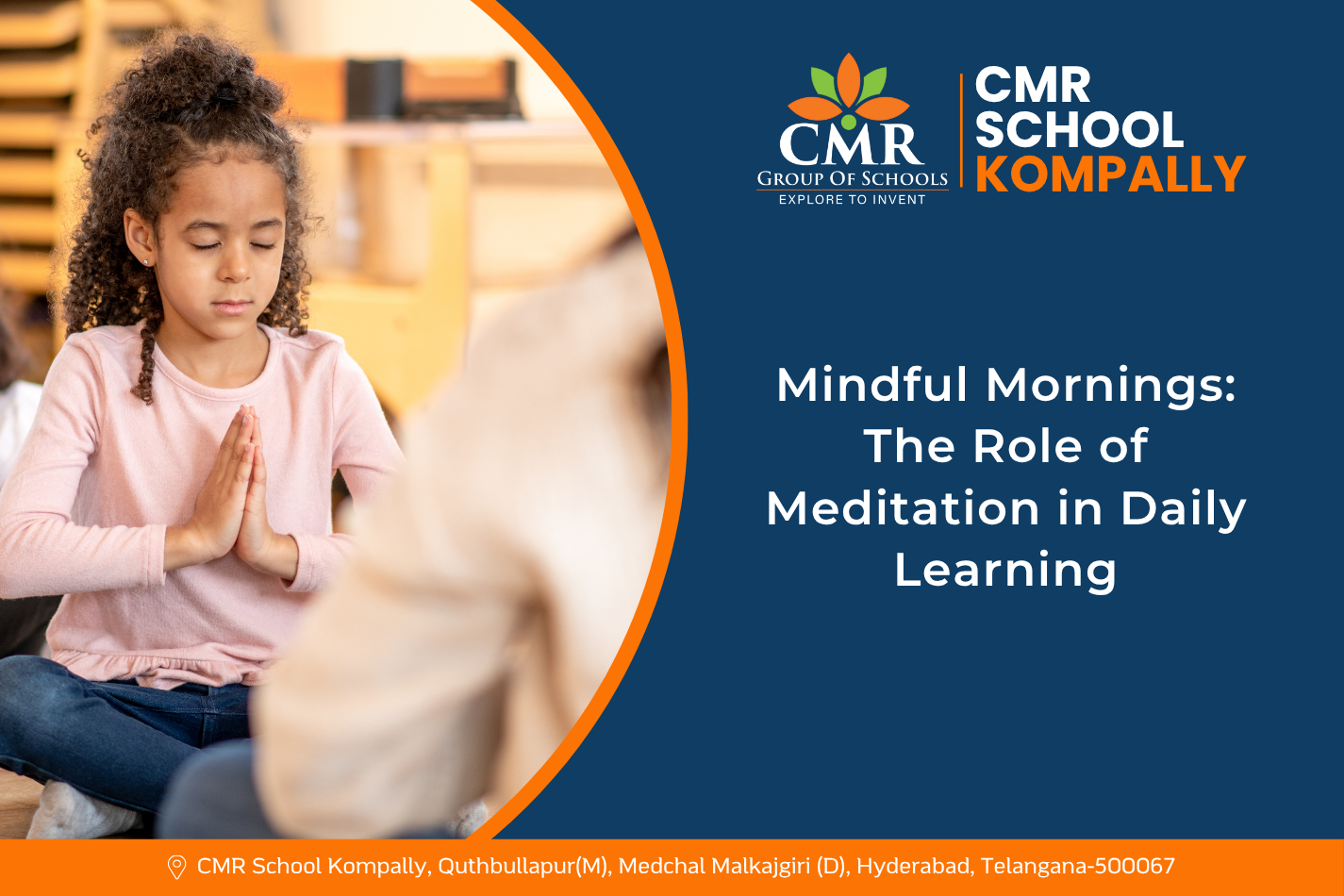Introduction
Final exams can feel like a mountain looming ahead. But guess what? With the right roadmap, even Everest can be climbed—one step at a time!
At CMR School, Kompally, we believe that preparation doesn’t have to be stressful. In fact, when approached with structure and positivity, exam prep can empower students to perform at their very best.
So, whether you’re a student trying to plan your study time, or a parent trying to guide your child through this crunch period, we’ve got you covered. Here’s your ultimate exam preparation schedule—straight from the academic mentors at one of the Top CBSE Schools in Kompally.
Why Planning Matters During Finals
You wouldn’t build a house without a blueprint—so why prepare for exams without a plan?
Structured schedules prevent last-minute cramming, reduce stress, and help students retain more information. A clear plan also boosts confidence. At CMR School, Kompally, we teach our students to break down big goals into daily targets—that’s the secret to success.
Week-Wise Study Blueprint
Here’s a 4-week exam prep roadmap you can follow:
Week 1: Syllabus Scan & Subject Mapping
- Know your syllabus inside out
- Identify strong and weak subjects
- Make a subject-wise revision plan
Week 2: Core Concepts & Practice
- Focus on core chapters
- Start solving previous year question papers
- Begin daily mock tests in weaker subjects
Week 3: Strengthening Weak Spots
- Review mistakes from mock tests
- Take help from teachers or peers
- Summarize difficult topics using flashcards or mind maps
Week 4: Full Syllabus Revision
- Stick to revision only—don’t learn new topics now
- Focus on speed and accuracy
- Stay calm and confident
Daily Time Table for Balanced Learning
Here’s a suggested daily routine for exam prep:
| Time | Activity |
|---|---|
| 5:30 AM – 6:00 AM | Wake Up & Stretch |
| 6:00 AM – 8:00 AM | Core Subject 1 (e.g., Math) |
| 8:00 AM – 8:30 AM | Breakfast & Break |
| 8:30 AM – 10:00 AM | Core Subject 2 (e.g., Science) |
| 10:00 AM – 10:15 AM | Short Break |
| 10:15 AM – 12:00 PM | Revision of Notes/Flashcards |
| 12:00 PM – 1:00 PM | Lunch & Relaxation |
| 1:00 PM – 3:00 PM | Practice Writing / Past Papers |
| 3:00 PM – 4:00 PM | Power Nap or Light Walk |
| 4:00 PM – 6:00 PM | Languages/Other Subjects |
| 6:00 PM – 7:00 PM | Exercise/Break Time |
| 7:00 PM – 9:00 PM | Light Revision or Group Study |
| 9:00 PM – 9:30 PM | Prep for Next Day + Sleep |
Top Subject-Wise Preparation Tips
Math:
Practice is key. Solve 5-10 problems daily. Review formulas each morning.
Science:
Understand concepts, don’t memorize blindly. Use diagrams and flowcharts.
Social Studies:
Timelines and mind maps help. Group study can make this subject more engaging.
Languages:
Practice grammar, writing formats, and vocabulary. Read aloud to improve retention.
The Power of Revision Cycles
We recommend the 3-2-1 method:
- Revise each topic 3 times before exams
- Space revisions: Day 1 → Day 3 → Day 7
- On the final week, go through summaries only
This keeps information fresh in the memory—no more “I forgot everything!” moments.
The 50-10 Rule: A Secret Weapon for Focus
Here’s a smart tip from CMR mentors:
Study for 50 minutes, then take a 10-minute break.
Why? It keeps your brain from getting overloaded. Use break time to stretch, snack, or walk—just avoid screens.
Don’t Forget Breaks, Sleep, and Hydration
Success isn’t just about study hours—it’s about wellness.
- Sleep: At least 7 hours
- Water: Keep a bottle near your desk
- Food: Eat balanced meals, avoid junk
- Breaks: Refresh your mind every few hours
A healthy body fuels a sharp mind.
Dealing with Exam Anxiety: Practical Tips
Feeling nervous is normal. But don’t let it control you.
Try This:
- Breathe in for 4 seconds, hold for 4, and out for 4
- Talk to someone—parents, teachers, or friends
- Avoid comparing your prep with others
CMR counselors are always ready to help students handle exam stress with grace.
Mock Tests: Your Best Friend
Mock exams help students:
- Learn time management
- Identify weak areas
- Practice real-time pressure handling
CMR regularly organizes mock tests and reviews to help students build confidence. Don’t skip them!
Parents’ Role During Exam Prep
You’re not just a cheerleader—you’re the coach, referee, and support system.
Here’s what helps:
- Create a peaceful study environment
- Encourage, don’t criticize
- Monitor sleep and eating patterns
- Celebrate small wins along the way
Your calmness sets the tone at home.
CMR’s Support System: We’re With You!
At CMR School, Kompally, we:
- Share detailed study guides
- Offer one-on-one doubt sessions
- Provide counseling and wellness tips
- Conduct pre-exam orientation programs
We’re not just a school—we’re a support system.
Final Tips Before Exam Day
- Pack your bag the night before
- Sleep early, wake refreshed
- Eat well before the exam
- Read instructions on the question paper carefully
- Manage time and review answers if you finish early
Conclusion: Conquer Exams with Confidence
Final exams may feel like a challenge, but with the right plan, you can turn anxiety into achievement. Whether it’s planning smart, revising right, or simply taking care of your health—success is a combination of small daily efforts.
And remember, you’re never alone in this journey. At CMR School, Kompally, we’re walking this path with you—every page, every formula, every step.
Good luck! You’ve got this.
FAQs
1. How early should students start preparing for final exams?
Ideally, at least 4 weeks in advance to allow time for learning, revision, and practice.
2. What’s the best way to revise long answers in subjects like Social Science?
Use mind maps, bullet points, and highlighted keywords to condense information and make it easier to remember.
3. Can physical activity during exams actually help?
Absolutely! A 20-minute walk or light exercise boosts blood flow to the brain and improves focus.
4. How many hours should students study per day during finals?
Around 6–8 focused hours daily, including breaks and revision time, is ideal.
5. How can CMR School, Kompally support students during exams?
CMR offers personal mentoring, mock tests, study materials, and counseling to help students do their best.



